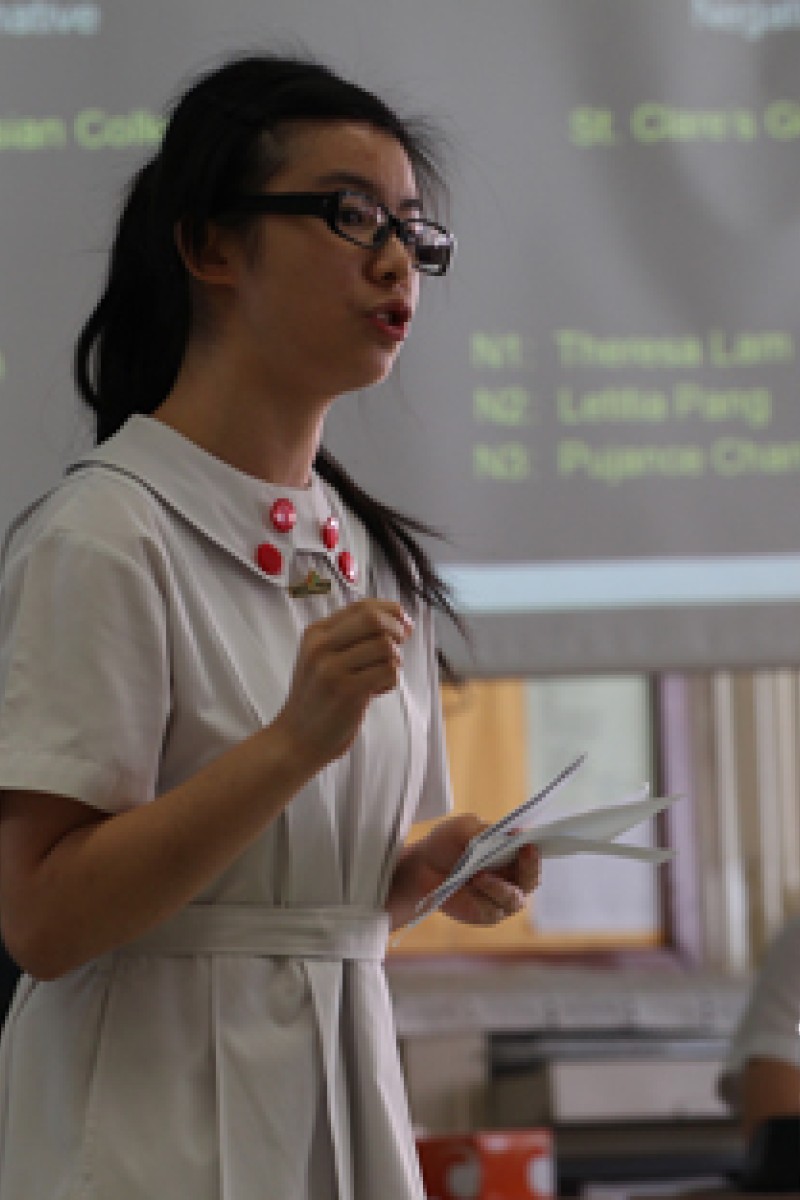
Strong arguments on why Hong Kong should not use this controversial power source won the day
 Form Five student Letitia Pang Yuen-man, of St Clare's Girls' School, was named as best speaker.
Form Five student Letitia Pang Yuen-man, of St Clare's Girls' School, was named as best speaker.In the third round of the 13th Nesta-SCMP Debating Competition, Pui Tak Canossian College and St Clare's Girls' School debated the motion "That nuclear power (fission) should have a place in Hong Kong's future". Pui Tak agreed with the motion while St Clare's opposed it. The debate took place on May 24 at Pui Tak Canossian College in Aberdeen and was adjudicated by Ivy Leung from True Light Middle School of Hong Kong.
Both schools put forward their views on whether or not it was safe and practical for Hong Kong to use nuclear energy.
The affirmative side thought nuclear power provided a solution to Hong Kong's increasing energy demands. They said nuclear energy was less polluting than fossil fuels, was a reliable energy source and could satisfy the city's future needs.
This team line was clearly stated at the beginning of the debate and well maintained throughout. This effort was much appreciated by the adjudicator. "All three speakers repeated the team line," Leung said. "I can see that they have practised a lot. But I think they could have done a better job on their teamwork by referring to each other's comments to reinforce their arguments."
As for the negative side, they were criticised for not having a clear team strategy, but praised for having strong arguments. "Their arguments were solid," the adjudicator said. "They mentioned that life is priceless and should not be put at risk to make way for nuclear power. Their point on the government's lack of ability to handle nuclear emergencies was also convincing. But I felt that they could have attacked the affirmative team's argument on using nuclear energy to improve Hong Kong's air quality because there is more than one factor leading to air pollution."
With their stronger presentation and more convincing evidence, the negative side squeezed out a two-point victory. The team's second speaker, Form Five student Letitia Pang Yuen-man, was named as best speaker.
Leung advised the third speaker of the negative side that the way to gain advantage in a debate was by raising more questions to attack the opponent's argument. "This person is the last to speak. There will be no more rebuttals from the opponent. This is something that all negative third speakers should learn to take advantage of," she said.
The contest is organised by the Native English Speaking Teachers' Association and the South China Morning Post.